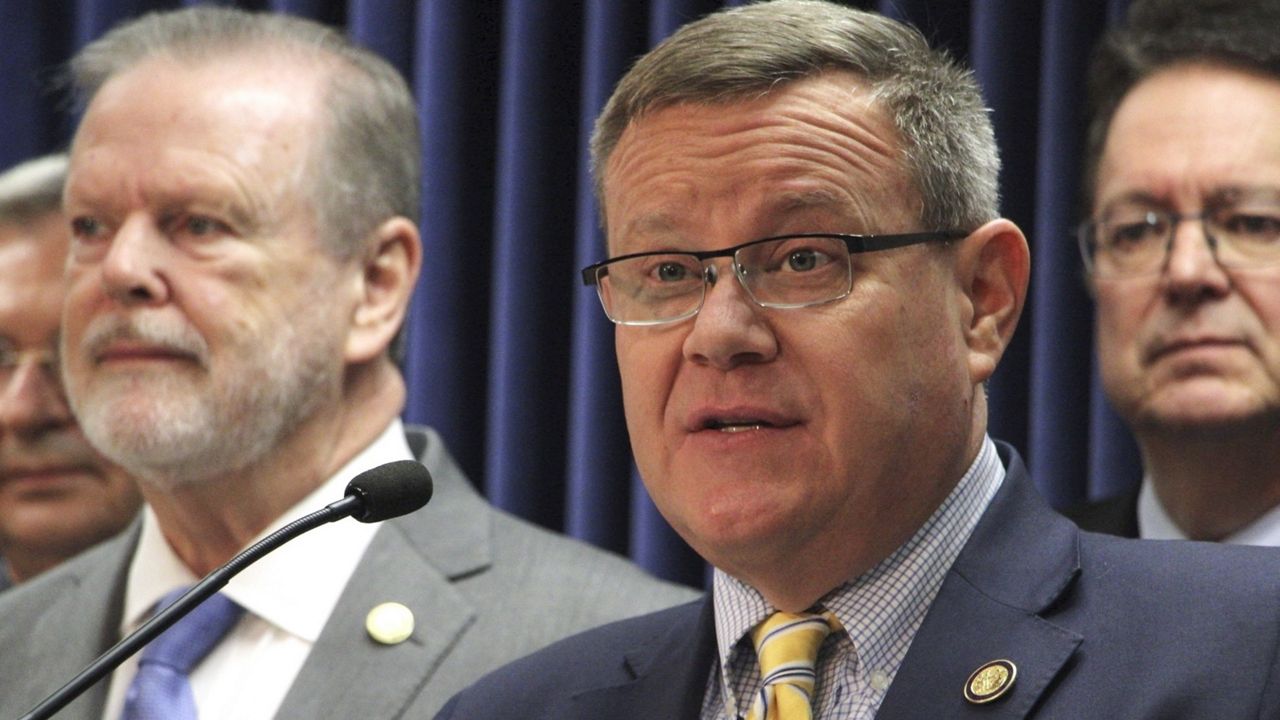The Supreme Court overturned Roe v. Wade last year. Since then, advocates on both sides of the abortion debate have been expecting the Republican-controlled General Assembly in North Carolina to pass new abortion restrictions in the state.
House Speaker Tim Moore this week said Republican lawmakers are coming to a consensus on a ban on abortions after 12 weeks of pregnancy.
“I think we’re really close to being on the same page,” Moore said Thursday, according to the Associated Press. “At a high level, that consensus position I think is what you’re going to see.”
Abortion-rights advocates say the ban would have a chilling effect on doctors and patients.
“North Carolinians don't want this in our state,” said Jillian Riley, with Planned Parenthood South Atlantic.
“We are already seeing the harmful ripple effects of abortion bans across the country as people are forced to travel long distances for time-sensitive, essential health care and are being denied care for miscarriage management, ectopic pregnancies, and other high-risk conditions as doctors are forced to consult attorneys before providing life-saving care,” she said.
In North Carolina, abortion is legal through 20 weeks of pregnancy. The law makes an exception in cases when an abortion is needed to save the mother’s life. The state requires a 72-hour waiting period after a woman first meets with an abortion provider.
North Carolina has become a destination for women from surrounding states seeking to have an abortion. Many states in the South have much more restrictive laws or outright bans.
When the U.S. Supreme Court overturned the landmark Roe v. Wade ruling last summer, it left the question of abortion rights up to state legislatures. Since then, other states have passed new abortion restrictions or allowed abortion bans already on the books to go back into effect.
The South Carolina Supreme Court overturned a 6-week abortion ban earlier this year. But legislators there are working on a new bill to restrict abortion after 6 weeks. There are legal challenges to abortion bans in other state courts around the country.
Republicans in the North Carolina House and Senate have been negotiating separately this year to figure out what they want to do on abortion.
Some Republicans have argued for banning abortion as early as six weeks into a pregnancy. That would be similar to restrictions in other states that ban abortions after an ultrasound can detect cardiac activity.
Moore said the consensus forming in his party is to ban abortion after the first trimester. It would include exceptions for cases of rape, incest, fetal abnormality or to save the mother’s life.
“Conversations remain ongoing on the specifics of a proposal, but Senate Republicans remain hopeful that we can land on a proposal that will save the most innocent lives and become law,” said Lauren Horsch, spokeswoman for Senate leader Phil Berger, according to the AP.
Moore told reporters Thursday that details are still being hammered out and a bill could be filed in the “coming weeks,” the AP reports.
The legislation could also include measures to give pregnant women better access to health care and improve the adoption system, according to the AP.
Gov. Roy Cooper, a Democrat, has vowed to veto any new abortion restrictions. But Republicans in the House and Senate now have enough votes to override a veto in both chambers.
One unknown in the House is how Rep. Tricia Cotham, who switched parties this month, would vote on abortion. She campaigned as a Democrat and said she would protect the right to abortion. Cotham’s vote could be key in overriding a veto from the governor.
Democrats in the General Assembly have presented a united front on protecting abortion access. But Republicans may have the three-fifths vote they need to make new abortion restrictions the law in North Carolina.
If a new 12-week abortion ban becomes law, it would likely see swift legal challenges in North Carolina courts.





